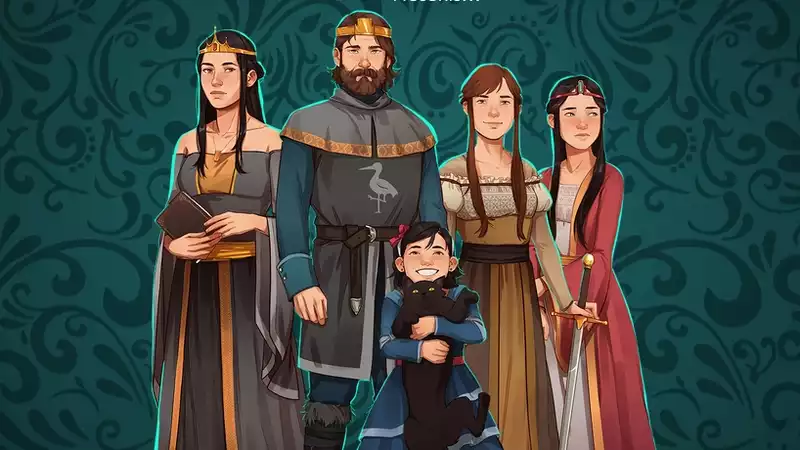"Yes, Your Grace" is a choice-driven adventure game in which you play as a king who decides the fate of his subjects. The beautiful retro graphics are colored by simlish dialogue and a great soundtrack. The writing is also (mostly) very good. It's a shame, however, that the atmosphere is repeatedly shattered by subtle hints from tutorials and advisors, and at one point an awkward reference to "Hypnospace Outlaw."
To begin with, it's all very simple. Entertain the lords and stinky peasants in the throne room, listen to their wants and needs, and decide if you feel like improving their dreary lives. Of course, I can't say yes to everyone. All I have is a limited amount of money and "supplies" that sound ominous, like Soylent Green. As time goes on, I need to build up my army and make allies. That's where things get interesting. [It is impossible to get all the lords and kings on my side. Their desires and interests are conflicting, so you have to choose who to woo. In honor of the game, I must say that I care for this kingdom to the best of my conscience. When one lord promised to help me if I allowed the sale of the harmful drug "dust" and another promised to help me if I worked to eradicate drugs, I did not hesitate to start my own "war on drugs."
But let's rewind a bit. I am soon introduced to my wife and three beautiful pixelated daughters. The family bond is strong and believable enough that by the end I find myself constantly doing what I believe is right for each of them. But, without spoiling too much, an important decision is made for me that will determine the fate of my daughters. It is the most important decision in the game, and it strikes a huge blow to the idea that my actions have important consequences in this world.
Nevertheless, there are clear examples of how my duties as king affect the unfolding of events, and I don't want to spoil them for you. The game warns me that supplicants are not always faithful to me. When they are, it is often obvious or the consequences of deception are negligible, but there are a few exceptions. I was truly sorry when some of the people I helped made off with my supplies as soon as they missed a meal. They are ungrateful countrymen.
The thinking seems to be that you can't please everyone, so you have to decide who to help and hope you make the right choice. This is because one can usually only speak to one person at a time in the throne room and must make a decision before meeting the next person. You have to make a decision before you meet the next person. Once I sent my general to investigate for a villager, only to find that the next person in turn also needed my general (the option was to offer more gold than I had). Had I had a choice, I would have helped the second person.
There are big battles and lots of warning of them. While you give orders and make decisions during the battle, your influence during the battle is negligible, and your performance (or lack thereof) is effectively determined before the big day. To me, this is the most interesting element of the game. In my first battle, I survived just in time, with only two soldiers left. I think this is partly due to the fact that during the weeks of preparation, I devoted more resources to taking care of my subjects than to the elements needed to defeat the enemy. I was concerned about the outcome because key characters were put in danger during the conflict.
The story twists were an odd mix of "I could have predicted this a mile away" and "what the heck." The small contrivances are more memorable than the major storylines. Choosing to imprison rather than execute a single enemy paid off in ways I never expected to learn much later. Speaking of little performances, the animation deserves a special mention. I should note the affection and warmth with which the king embraces his wife and daughter. For a character model with such a low level of detail, it is incredible.
I don't have as much control over events as I would like (or honestly feel promised). Still, the story is powerful and memorable, and throughout, you are made to feel a part of the Kingdom of Davern and to try to be a good king, rather than someone who indifferently clicks on dialogue choices in the game. This emotional uplift is the game's greatest achievement.
.

Comments